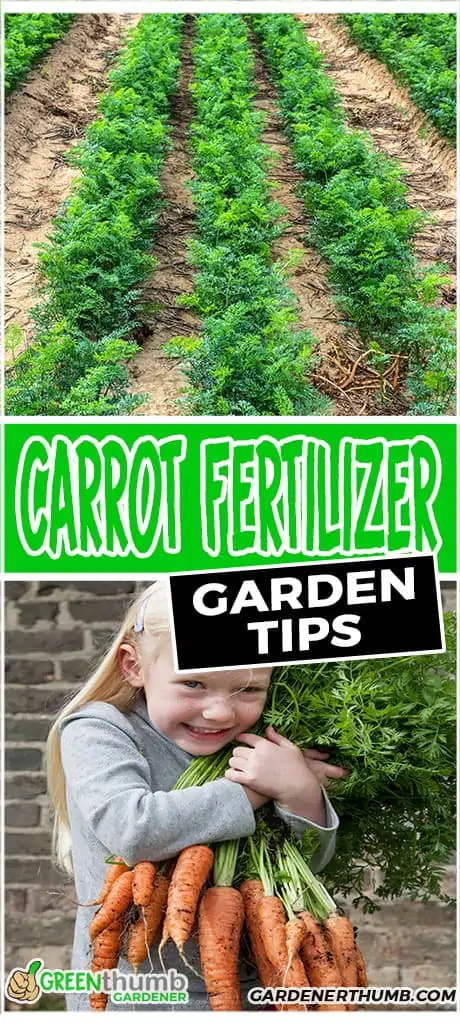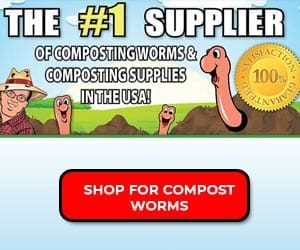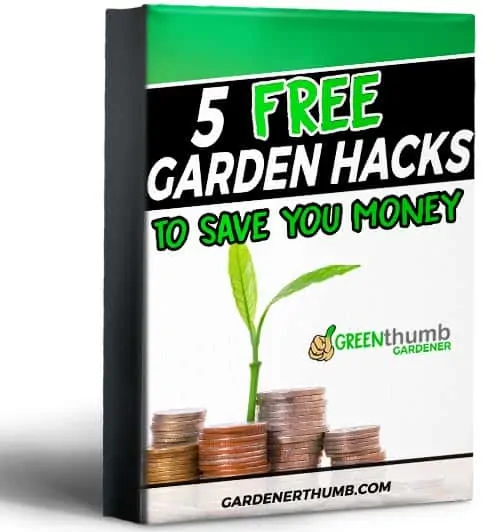Fertilizer For Carrots
Last updated: 06/08/22
Carrots are amazing vegetables, and they are rich in fiber, beta carotene, potassium, vitamin K1, and antioxidants. Fresh carrots are crunchy and are eaten raw, but they are often baked, sautéed, or mixed with other vegetables for a yummy salad.
The carrot plant is a popular root vegetable for every gardener because they are easy to grow and great with novice gardeners. But it doesn’t mean you can leave them, and they can grow by themselves.
Carrots still need to be given best conditions and a nutrient rich type of soil to grow successfully. You can do this by providing carrot fertilizers, regular watering, and enough sunlight.
Green thumb Gardener occasionally links to product and/or services offered by vendors to assist you with all your gardening needs. Some of these may be affiliate links, meaning we earn a small commission if items are purchased.
Want to Download a Garden Hack Guide for FREE
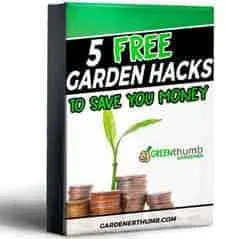
Enter your email below and we will send you a guide to help you SAVE money in your garden.
How to Grow Carrots
Carrots are very easy to grow and, with the right conditions, will develop into a healthy vegetable plant. It only needs loose soil, full sunlight, right dose of fertilizer, and adequate soil nutrient to have an excellent carrot harvest.
Carrot seeds grow best in loose soil that is moist and well-drained. This is because carrots grow deep in the ground. Carrots need a soil temperature & ideal climate of around 45° and 85 °F to grow correctly.
If possible, conduct a soil test to know its acidity level. Your carrot garden will grow well in mildly acidic soil with a pH level between 5.5 and 7.0.
Steps to Grow Carrots
1. Prepare The Site
Choose a location for your carrot crop that is exposed to full sunlight. Prepare the soil by placing appropriate mixture of organic compost and garden soil.
Carrots grow well when they are placed in deep, good-textured soil and free from debris and stones.
Rocky soil can cause deformities or forking of carrot roots. Turn the planting bed at least 12 inches (30 cm) deep. Carrots grow very well in loose ground.
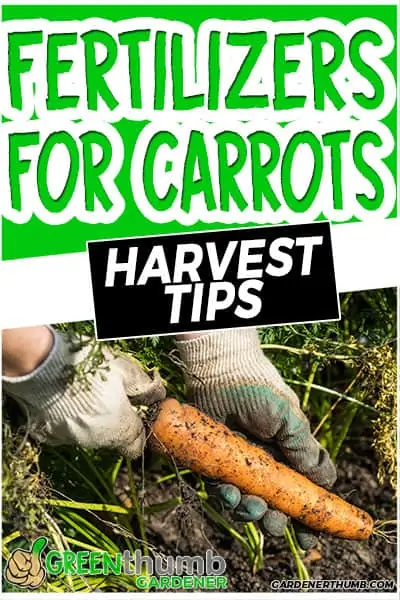
2. Sow the carrot seeds
You can sow the carrot seed around two weeks before the last frost. Carrot seeds are tiny, so you can mix them with sand to make it easier for you to broadcast or sprinkle them in the garden bed. You can use a garden rake to make a trench to sow the seeds into rows.
Sow the seeds thinly and make sure not to overly placed the seeds. Don’t forget to cover the seeds with at least 1/4 inch (10 cm) of soil and press them gently with your fingers.
The seeds need good contact with the soil to germinate properly. Keep the soil moist with a fine spray of water.
3. Water the Carrots
Make sure to water at least one week after the seeds are planted. If there is no rainfall, make sure to provide your carrots at least 1 inch (25 mm) of water a week. It works better if it’s slowly soaked, so you can either use drip irrigation or a soaker hose for the best results.
The best way to find out if the carrots need watering is to dig 4 inches (10 cm) into the rich soil to check if moisture is underneath the ground.
If the soil is dry, then it’s time to water. Make sure you water slowly so that the seeds will not be washed away and grow on the surface instead of underground.
4. Thin the Seedlings and Keep it Weed Free
Check on your growing seedlings and remove weeds to ensure healthy plant growth & leaf formation. Thin the seedling 1 to 2 inches (5.08 cm) apart to avoid crowding. You can do this by gently lifting the seedlings or cutting their tops as the seedlings develop.
Protect the remaining seedlings by covering them with a thin layer of mulch. You can enjoy your juicy carrots a few weeks after planting.
Baby carrots can be harvested in about 50 to 60 days, and mature ones are ready in about 75 days.
Why Carrots Need Fertilizer?
Carrots can usually take in natural nutrients from the soils because of its deep roots but sometimes natural nutrients in the soil are not enough. Usually heavy soils require less fertilization compared to sandy soil.
If the soil is not rich in nutrients, you need to fertilize your carrot plants. Adequate amounts of potassium, phosphorous and other soil nutrients are required to maintain healthy plant growth.
Having soil rich in lots of nutrients has shown to help prevent pests and diseases. Organic gardeners traditionally use lots of organic materials & natural fertilizer like fresh manure, worm compost, & compost to help build a healthy soil.
Best Fertilizer for Carrots
Carrots need fertilizers if your garden does not have enough nutrients. A good fertilizer can supply your carrots with the proper nutrients they need to grow.
It would be best to choose a fertilizer that is low in nitrogen and high in potassium and phosphate. A 0-10-10 or 5-15-15 fertilizer will work well with your carrot plant.
It is because potassium and phosphate promote root development and since carrots are root crops these nutrients will help them grow better.
For example 5-15-15 fertilizer contains 5% nitrogen, 15% phosphate and 15% potassium. You will see these 3 number codes in the packaging of the fertilizers.
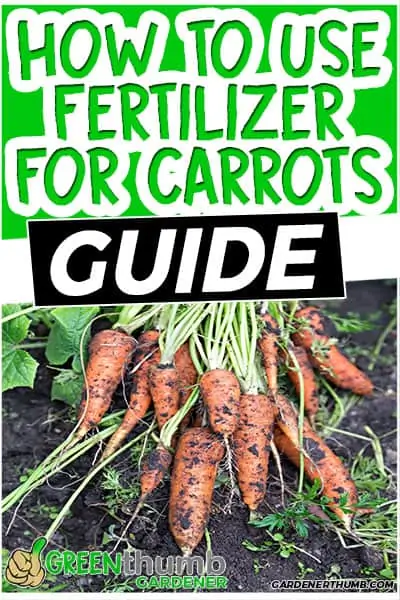
Do not use too much water-soluble fertilizers because they contain too much nitrogen. You can dilute it with more water. It is only recommended to use at the beginning growth stages.
You can also use compost, but you have to place them before planting.
| Image | Product | Features | Price |
|---|---|---|---|
Best Liquid Fertilizer  | Organic Wild Fish Fertilizer and Plant Supplement |
| Check Current Price |
Solid option  | Lilly Miller Morcrop Tomato & Vegetable Food 5-10-10 |
| Check Current Price |
Best For Root Veggies  | Espoma Organic Garden-tone 3-4-4 Organic Fertilizer |
| Check Current Price |
Good All Around 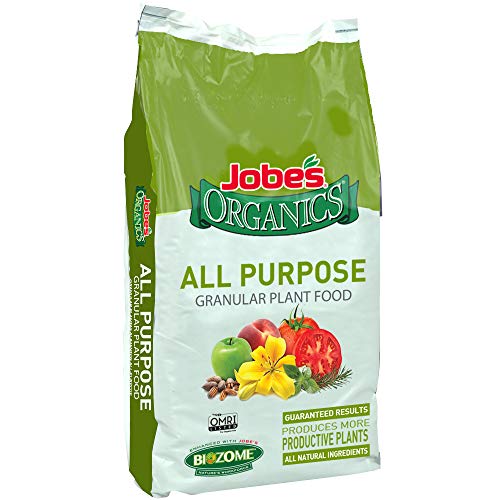 | Jobe’s Organics All Purpose Granular Fertilizer |
| Check Current Price |
When To Fertilize Carrots
You can place fertilizers in the soil before planting your seed. Loosen the soil to around 8 to 12 inches (30.48 cm) deep. Afterwards, you can spread the fertilizer using 1 cup (0.24 liters) for every ten feet of soil.
Using a garden rake, mix the fertilizer to about three to four inches of soil and make sure they are spread evenly. Concentrated pockets of fertilizers can harm your growing carrots.
Plant your seeds and wait for the seedlings to emerge from the soil. You can start fertilizing your carrots when the tops grow to about 3 inches (7.62 cm).
Use two tablespoons of fertilizer for every ten feet of soil. If you are using granules make sure you are wearing gloves and mix the soil with it.
Wait for the carrots to grow around six to eight inches and if you notice pale leaves you can add more fertilizers.
Final Thoughts
Having your own carrot garden is great because it can provide you with a nutritious and bountiful harvest of carrots.
They are easy to grow and with enough care and attention you will surely enjoy fresh carrots and make it part of your meals and snacks.
Related Questions
Are coffee grounds good for carrots?
Yes, coffee grounds are good for carrots. You can place and mix coffee grounds into the soil where you will plant your carrots.
Is bone meal good for carrots?
Yes, bone meal is also good for carrots. Bone meal is rich in phosphorus that helps develop the roots.

